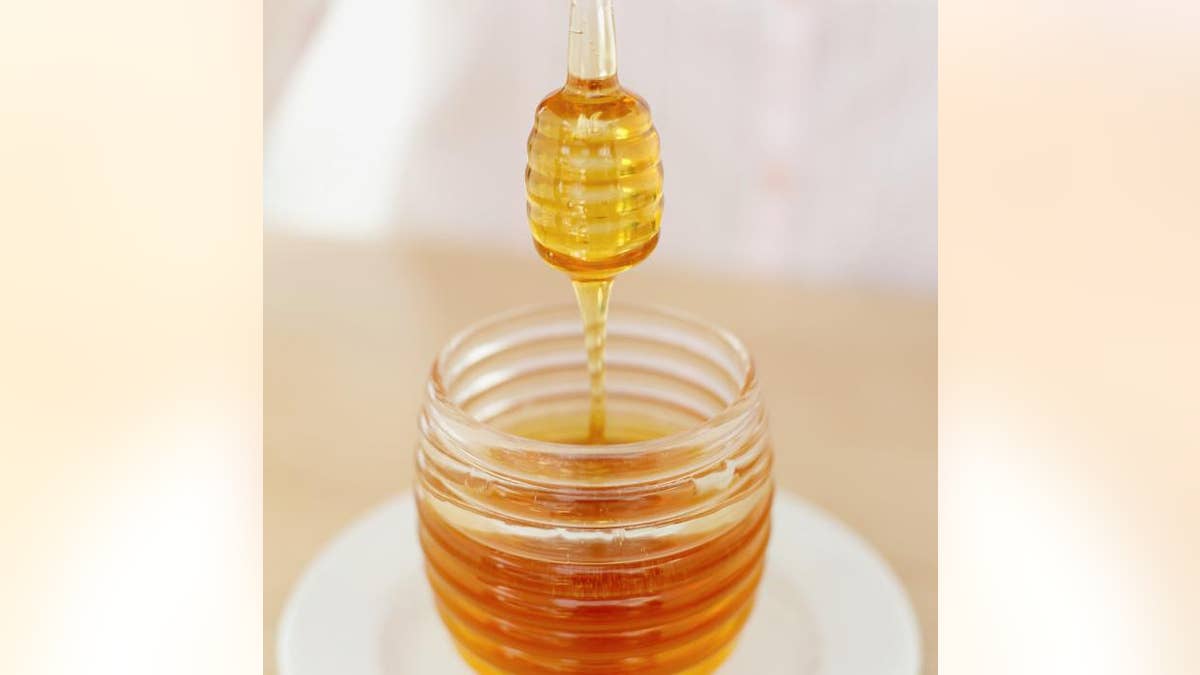
Could a sticky treat found in nearly every kitchen pantry do more than sweeten your tea?
For those suffering from pesky pimples and dry skin, honey may hold some promise in the beauty department.
“Honey has been shown to be antibacterial and therefore potentially helpful for acne and for preventing infections in patients with eczema,” explains Dr. Monica Scheel, a faculty member for the University of Minnesota Medical School who assists in teaching integrative medicine. “Medical grade honey contains hydrogen peroxide and other antimicrobial compounds. The hydrogen peroxide could help treat acne by exposing acne bacterial to oxygen, which kills the bacteria.”
What about those with dry skin?
"Honey works as an excellent moisturizer, and in addition has antiseptic and antibacterial properties," says Dr. Susan Stuart, a fellow certified by the American Academy of Dermatology. "Daily application of honey is an excellent way to keep your skin soft, supple and clean. It can be applied in a small amount to the facial skin much like one applies a moisturizer. It can also be used as a face mask on a weekly basis as it contains glycolic acid, the chemical used by many dermatologists for facial chemical peels."
But not every dermatologist is prescribing honey to their patients. Stuart does note she wouldn't recommend honey as a home treatment because it is “somewhat sticky and messy" and "my patients prefer medical grade products that create a lasting effect."
Also, not all honeys are created equal. There's the commonly-known table honey, which is available in supermarkets, and then there's medical honey, like the dark-hued manuka, which comes from the flowers of manuka shrubs in New Zealand. Despite a previous study stating manuka can kill bacteria, more research is needed to better understand how it works on the skin.
However, dermatologic surgeon Dr. Jessica Krant is hopeful on what future reports can reveal.
“Manuka honey is showing evidence of having antioxidant properties and potentially as an anti-cancer agent,” explains Krant. “Pure manuka honey may be effective in reducing skin aging and possibly even preventing the development of future skin cancers, though more research still needs to be done. Keep in mind that any manuka honey used needs to be as pure as possible to have any benefit and it can be difficult to find on the market.”
Want to try a honey mask at home? Experts agree to check in with a doctor first for any potential allergies before directly applying onto the skin. The National Honey Board recommends this simple facial recipe below for a spa night.
Exfoliating Honey Mask
Ingredients
1 tablespoon of honey
1 tablespoon of cornmeal
Preparation
In a small bowl mix honey and cornmeal until thoroughly combined. Apply the exfoliating facial mask with gentle, circular motions onto your T-zone, with special attention to the nose, chin and forehead. Leave on for 10 minutes. Rinse with warm water.





















